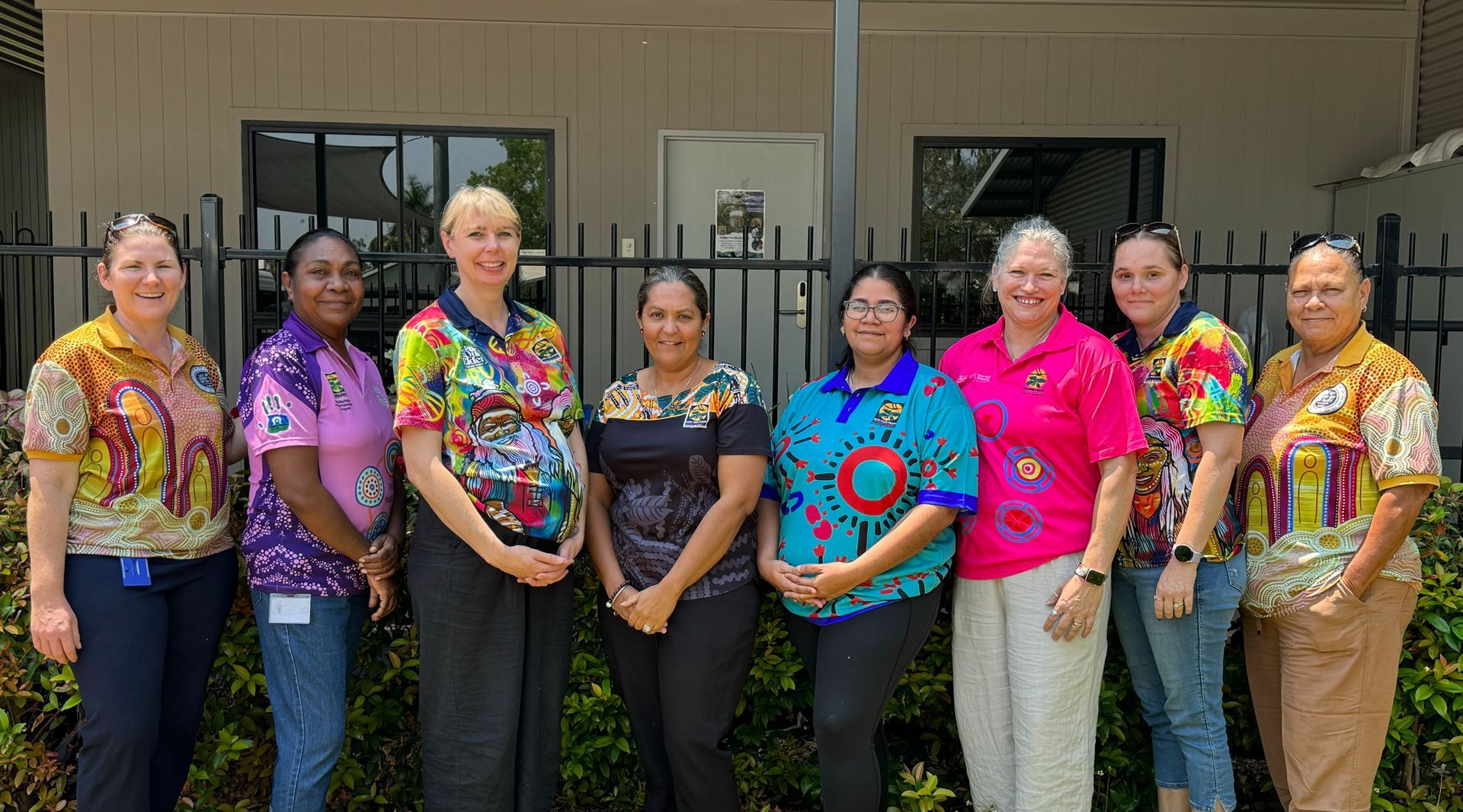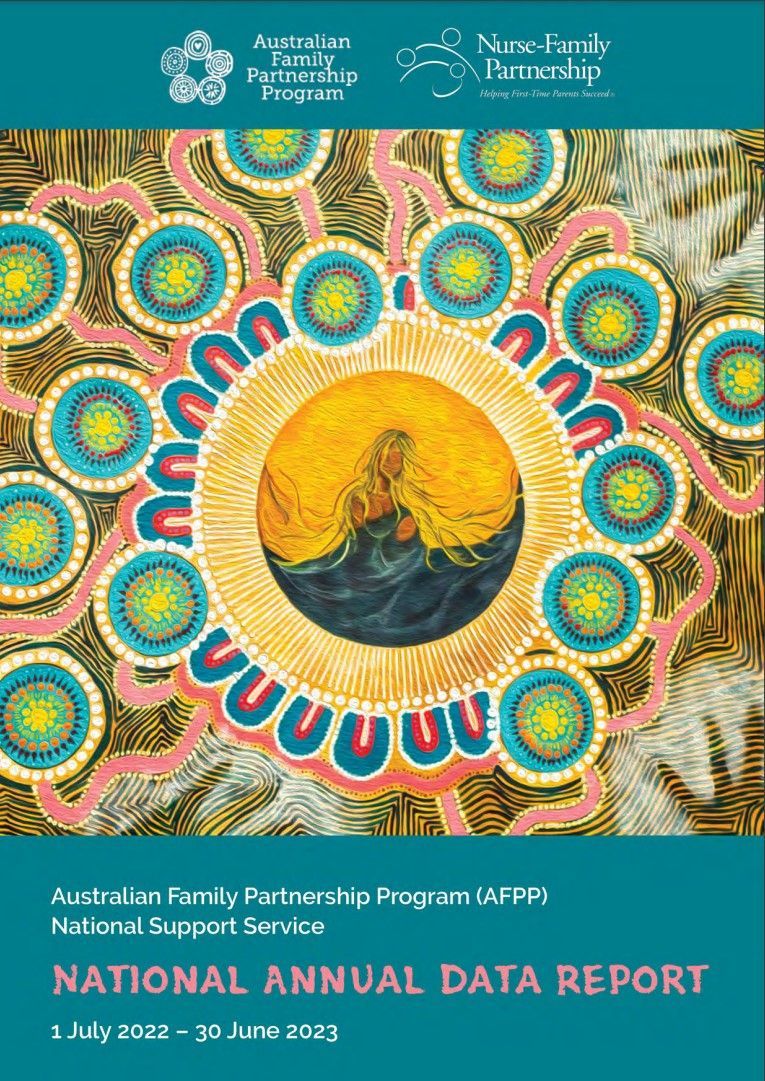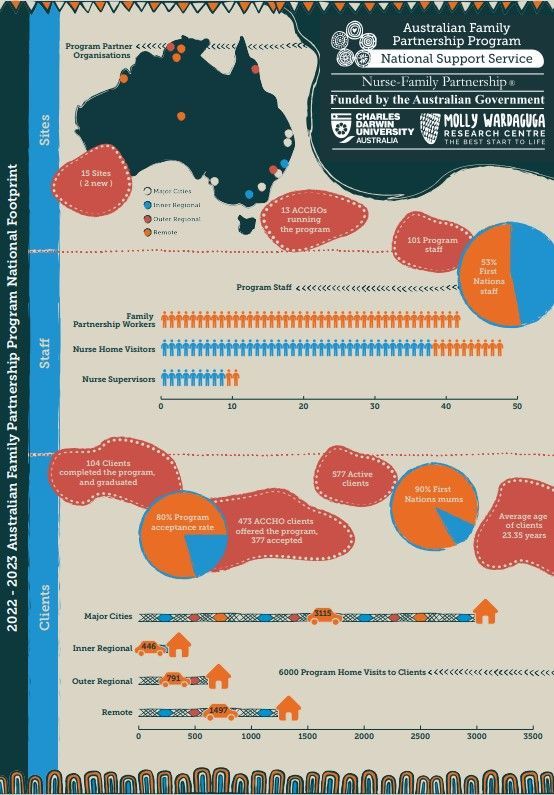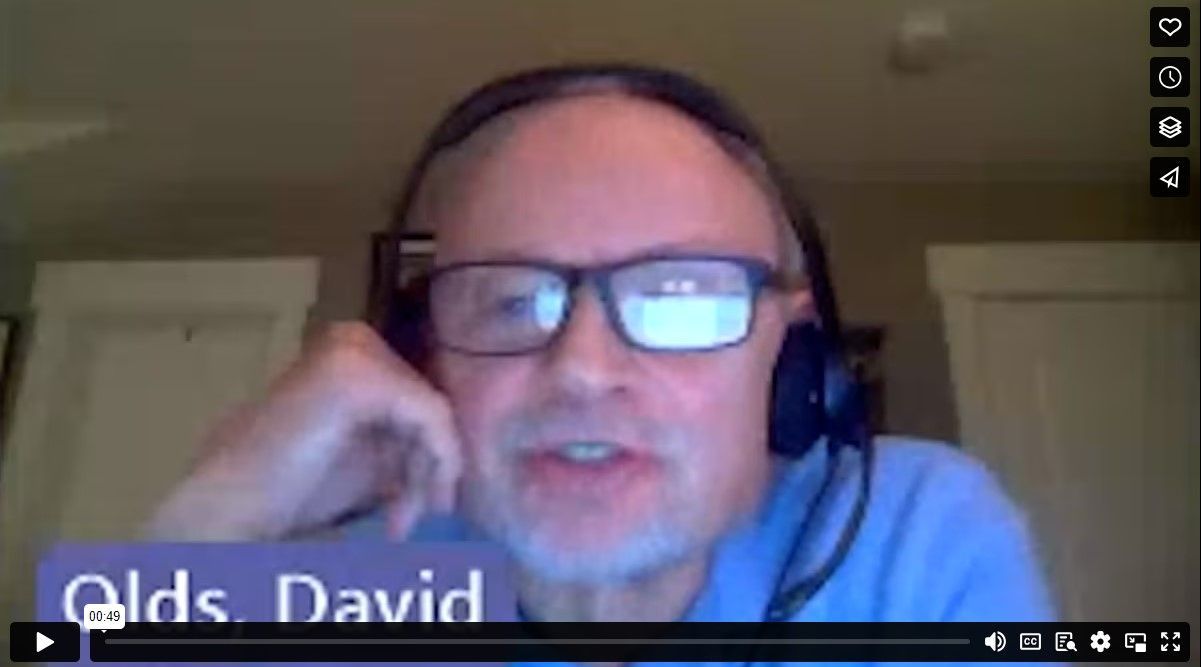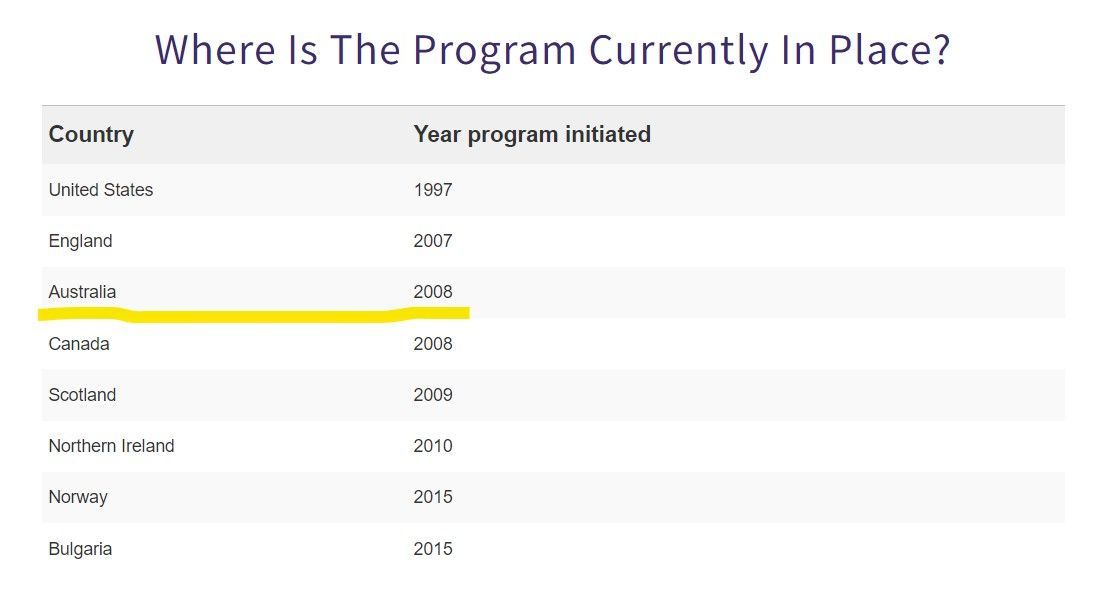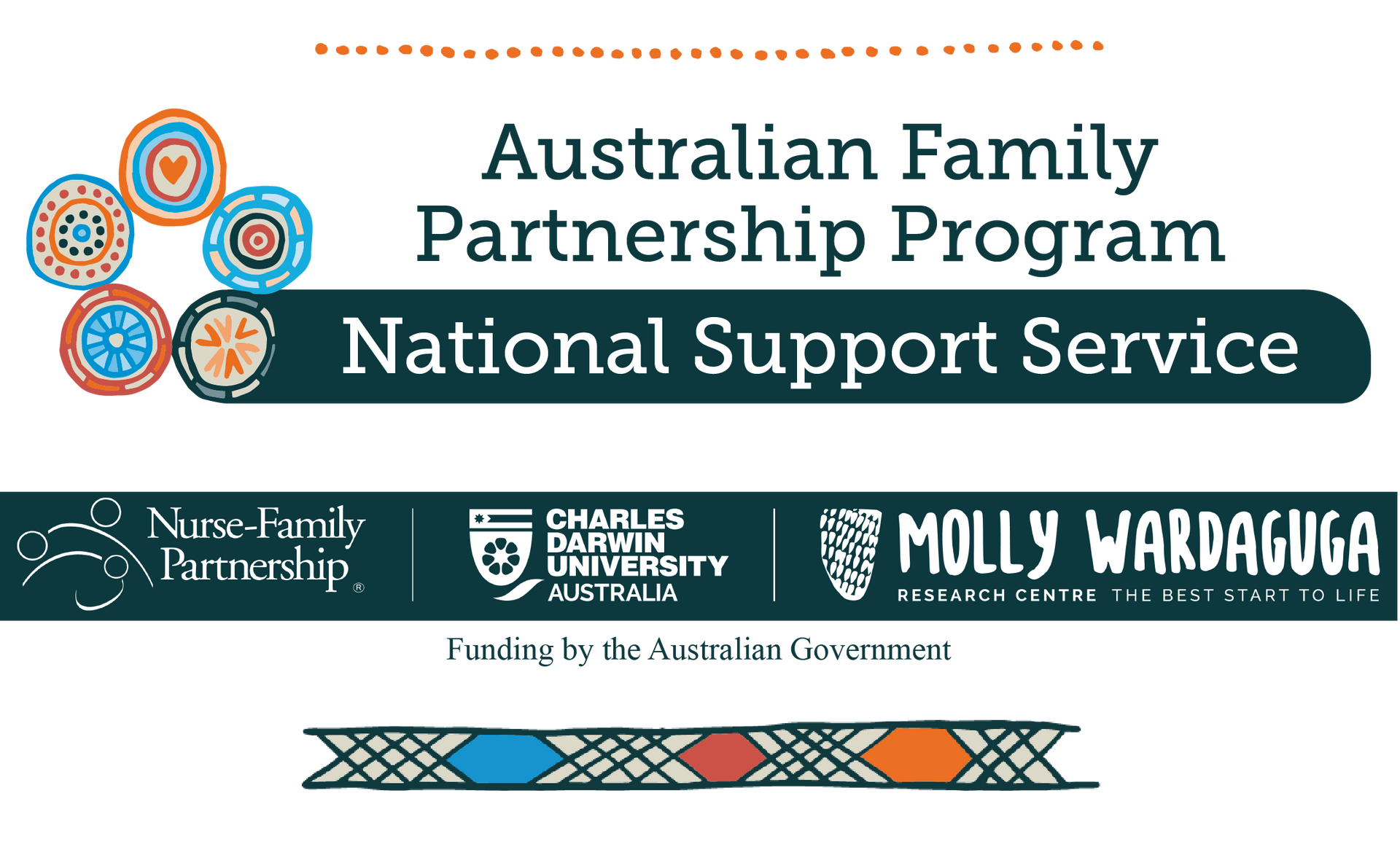
December 2023 Newsletter
National Support Service Director Message
Molly Wardaguga Research Centre Director Message
Dear Colleagues,
As the year 2023 draws to a close, I am filled with immense pride and gratitude for the extraordinary work each of you has contributed to the Australian Family Partnership Program. This letter is not just a reflection of our achievements but also a testament to the resilience, care, and transformative impact we have collectively fostered across our 15 national sites.
2023: A Year of Remarkable Achievements
This year has been one of significant milestones and growth. We have successfully expanded our reach, providing essential support and care to more families than ever before. We also welcome two new AFPP Partners – KAMS and PAHA – and their addition to providing to the expanding AFPP network but more importantly the program deliverables and what this will mean to the mum, the bubs and their communities.
Our commitment to culturally safe care that truly privileges Indigenous knowledge systems has been a beacon of excellence, ensuring that every family we serve feels culturally safe, respected, understood, and valued.
A few highlights of 2023 include:
- Realignment of the National Support Service with CDU’s Molly Wardaguga Research Centre: Position the AFPP as part of a global movement for a ‘Better Start to Life’.
- Indigenous Data Sovereignty Reform: Honouring the rights of Aboriginal and Torres Strait Islander peoples, communities, and partner organisations to maintain, control, protect, develop, and use AFPP data as it relates to them.
- Re-brand: Reflecting the NFP in Indigenous health contexts including the name change and refreshed logo from ANFPP to AFPP.
- Review Core Model Element’s (CME): Ensuring the Core Model Element’s more accurately reflect the Indigenous health contexts.
- Engagement: Strengthening engagement and partnerships with AFPP partner organisation.
2024: Priorities and Aspirations
Looking ahead to 2024, our focus will be on building upon these foundations with renewed energy and commitment. Our priorities for the coming year include:
- Appointment of a new National Director (Identified): Ensuring First Nations ways of knowing, being and doing permeate the work of the NSS.
- AFPP Leadership Group: Prioritise supporting the Leadership Group to advise the Department of Health and Aged Care on the AFPP.
- AFPP National Conference and 15th Anniversary Gimuy, Cairns, 22nd – 24th October 2024: A conference to mark the 15th anniversary of the AFPP to reflect on 15 years of service to our communities.
- Fidelity Reporting and Compliance: We will continue to prioritise fidelity reporting and the annual data report, ensuring that our practices not only meet but exceed the required standards.
- Re-brand: Reflecting the name change to AFPP and continued contextualisation in Indigenous health, including a new AFPP website.
- Commitment to Indigenous Data Sovereignty and transitioning ANKA to local data settings to inform localised decision making and program improvements.
- Research, Evaluation and Continuous Quality Improvement (CQI): Deepening our involvement in evidence base to continually inform and improve our practices.
A Culture of Care and Resilience
At the heart of Aboriginal and Torres Strait Islander cultures and of the AFPP program is a culture of care – for our clients, for each other, and for the communities we serve. This year has tested our resilience in many ways, yet we have emerged stronger and more united. Our ability to adapt, support each other, and maintain a high standard of care under challenging circumstances is nothing short of inspiring.
Transformation Through Collaboration
As we move forward, let us continue to embrace transformation through collaboration. Our collective efforts, ideas, and passion are the driving forces behind the positive changes we wish to see in the communities we serve.
In closing, I extend my deepest thanks to each of you for your dedication, hard work, and compassionate service.
Your contributions make a real difference in the lives of the families we support. Let us step into 2024 with optimism and a shared commitment to excellence in all that we do.
Wishing you all a restful holiday season and a prosperous New Year.
Warm regards,
Professor Roianne West (Kalkadunga Djkunde)
Interim National Director
Australian Family Partnership Program National Support Service
Dear Colleagues and Australian Family Partnership Program Partner Organisations,
As the year draws to a close, I want to take a moment to reflect on our journey through 2023 and share our vision for 2024. This year has seen significant achievement, challenge, and transformation at the CDU’s Molly Wardaguga Research Centre that directly impacts our Australian Family Partnership Program National Support Service work and, by extension, each of the 15 AFPP sites across the nation.
As we move into the new year, I want to express my heartfelt gratitude to each one of you for your unwavering commitment and hard work. It is your dedication that drives the success of the AFPP and makes a real difference in the lives of the families we serve.
The journey ahead is one of transformation and growth. Together, we will navigate these changes, drawing strength from our shared vision and commitment to excellence. Let us step into 2024 with renewed energy and optimism, ready to make an even greater impact in the lives of those we serve.
From all of us here, we wish you and your families a peaceful and joyous holiday season, and a prosperous 2024.
Warm regards,
Professor Yvette Roe (Njikena Jawuru)
Director
Add your title here
This is the text area for this paragraph. To change it, simply click and start typing. Once you've added your content, you can customize its design by using different colors, fonts, font sizes and bullets. Just highlight the words you want to design and choose from the various options in the text editing bar.
This is the text area for this paragraph. To change it, simply click and start typing. After adding your content, you can customize it.
The Best Start in Life
The best start in life for Aboriginal and Torres Strait Islander babies and their families.
The AFPP is part of a suite of programs led out of CDU’s Molly Wardaguga Research Centre. Birthing on Country is a metaphor for the best start in life for Aboriginal and Torres Strait Islander babies and their families. Learn more about the program of work here Closing the gap for Indigenous health | Birthing on Country. Here are links directly to the DJÄKAMIRR program which is a privileged insight into the aspirations of remote First Nations communities to reclaim their birthing culture from the stronghold of Western medicine. Also to the RISE Safely translational research program which is a First Nations led, co-designed and staffed MRFF study aims to establish exemplar Birthing on Country maternal child health services in rural, remote and very remote Australia in 5 years. building on 25 years of research, to develop the RISE SAFELY Implementation Framework of which the AFPP is a critical element. Watch CDU’s Molly Wardaguga Research Centre 2023 Year in Review here.
Indigenous Leadership and Governance
The Charles Darwin University (CDU) Indigenous Leadership Strategy (ILS) is a pillar strategy of CDU’s ‘Connect Discover Grow’ Strategic Plan (2015-2025). With an aspiration to be ‘Globally Recognised for Indigenous Leadership’. With appropriate and nuanced implementation, this ILS will ensure CDU upholds the standards contained within the Universities Australia (UA) Indigenous Strategy 2022-2025. CDU’s Molly Wardaguga Research Centre articulates a range of initiatives including: -
- Institute Status will include a First Nations Advisory Committee
- National Director (identified)
- Business Services Manager (identified)
- Chief Investigators (identified)
- Commitment to honouring Indigenous Data Sovereignty principles
The AFPP articulates a range of initiatives including: -
- Leadership Group (ACCHS Partner Organisation CEO’s)
- National Director (identified)
Add your title here
This is the text area for this paragraph. To change it, simply click and start typing. Once you've added your content, you can customize its design by using different colors, fonts, font sizes and bullets. Just highlight the words you want to design and choose from the various options in the text editing bar.
This is the text area for this paragraph. To change it, simply click and start typing. After adding your content, you can customize it.
Indigenous Data Sovereignty
Indigenous Data Sovereignty, CDU’s Molly Wardaguga Research Centre
Indigenous Data Sovereignty is the right of Aboriginal and Torres Strait Islander peoples, communities, and organisations to maintain, control, protect, develop, and use data as it relates to them and in ways that align with our self-determined priorities, aspirations and practices. In 2024 CDU’s Molly Wardaguga Research Centre committed to the principles of Indigenous Data Sovereignty. Hear from Director Professor Yvette Roe message here Prof. Yvette Roe Indigenous Data Sovereignty. Read CDU Molly Wardaguga Research Centre here:- DRAFT MWRC Indigenous Data Sovereignty Statement and DRAFT MWRC Statement 1 Pager
Indigenous Data Sovereignty, Australian Family Partnership Program National Support Service
This commitment extends to the Australian Family Partnership Program National Support Service and the minimum data provided by the partner organisations that receive funding from the Department of Health and Aged Care (DoHAC) to implement the program to support the continuation of the program with fidelity to the Family Partnership Program International.
To communicate our commitment and to increase awareness of Indigenous Data Sovereignty within the AFPP the NSS delivered an Information Session for partner organisations which you can watch here Indigenous Data Sovereignty Information Session on Vimeo. See the workshop PowerPoint presentation here in pdf Indigenous Data Sovereignty Presentation AFPP NSS.pdf and here in PowerPoint format for ease of use for your own purpose Indigenous Data Sovereignty Presentation AFPP NSS.pp
Indigenous Data Sharing Agreements, Australian Family Partnership Program National Support Service
This is the agreement in which CDU Molly Wardaguga Research Centre will formalise an agreement with partner organisations to share data for reporting purposes. The agreements will incorporate site specific Indigenous Data Sovereignty frameworks for reporting. Indigenous Data Sharing Agreement DRAFT
Resources
Below are some resources developed by the Lowitja Institute which is Australia’s only national Aboriginal and Torres Strait Islander community-controlled health research organisation. The first video is the Indigenous Data Sovereignty Readiness Assessment and Evaluation Toolkit which was developed to evaluate Indigenous Data Sovereignty (ID-SOV) principles and practices in action and as a resource specifically for Aboriginal and Torres Strait Islander communities and organisations to identify ID-SOV in practice.
National Annual Data Report
National Annual Data Workshop
The Australian Family Partnership Program (AFPP) National Annual Data Report July 1, 2022 - June 30, 2023, reports on data provided by the partner organisations that receive funding from the Department of Health and Aged Care (DoHAC) to implement the program. The program commenced in 2009 and annual reporting commenced in 2012 and provides critical information to support the continuation of the program with fidelity to the Family Partnership Program International. See full report here National Annual Data Report (1st July 2022- 30th June 2023).pdf. An infographic of the report has also been developed that aims to provide an easy-to-understand visual overview of the report. See infographic here National Annual Data Report Infographic (1st July 2022 - 30th June 2023). A summary of the report was presented as part of the Annual National Data Workshop by Associate Professor Cameron Hurst Associate Professor (Epidemiology and Biostatistics). See Cam’s presentation here National Annual Data Report presented Annual National Data Workshop.
The Australian Family Partnership Program (AFPP) National Annual Data Workshop aims to foster collaboration and knowledge sharing across Australian Family Partnership Program partner organisations, identify gaps and opportunities in your current data processes and encourage a data-driven culture that values informed decision-making in the Australian Family Partnership Program. See the workshop PowerPoint presentation here in pdf National Annual Data Workshop October 2022_2023.pdf and here in PowerPoint format for ease of use for your own purpose National Annual Data Workshop October 2022_2023.pp.
Add your title here
This is the text area for this paragraph. To change it, simply click and start typing. Once you've added your content, you can customize its design by using different colors, fonts, font sizes and bullets. Just highlight the words you want to design and choose from the various options in the text editing bar.
This is the text area for this paragraph. To change it, simply click and start typing. After adding your content, you can customize it.
Core Model Elements (CME) Review
The 2023 CME review responds to recommendations outlined in the ANFPP National Workforce Development Study – Informing the Way Ahead Project (West. R, et. al. 2018). Additionally, AFPP home-visiting teams have observed and reported that some CME benchmarks are not achievable in the Australian context and therefore consistently not met. The review has also been informed by the Cultural Respect Framework 2016 – 2026 for Aboriginal and Torres Strait Islander Health, the National Aboriginal and Torres Strait Islander Health Workforce Strategic Framework and Implementation Plan 2021–2031, and the National Aboriginal and Torres Strait Islander Health Plan 2021–2031.
The Information Session specifically related to the CME Review can be watched here National Support Service Information Session - Core Model Element Review on Vimeo. The CME review was also presented as part of the Indigenous Data Sovereignty Information Session and can be seen here Indigenous Data Sovereignty Information Session on Vimeo.
Watch recording of
Prof. David Olds relating to Core Model Element Review
Fidelity Reporting
The extent to which Australian AFPP program sites achieve benchmarks associated with to the 15 CMEs, is reported to Department of Health and Aged Care Indigenous Australians' Health Program 6-monthly in site-specific Fidelity Reports.
Progress and key timelines regarding the fidelity reporting: -
- Commencement of Fidelity Reporting: I am pleased to announce that our team has commenced the necessary preparations for the fidelity reporting due January 2024. This process is crucial in ensuring that our program's implementation aligns with the intended core model elements (CME’s).
- Completion of Data Entry: To facilitate a comprehensive and accurate report, we kindly request that all relevant data entries be completed by 31st December 2023. This will allow us to include the most recent and relevant data in our analysis.
- Draft Report Timeline: We anticipate that the first draft of the fidelity report will be ready by the week of 15th January 2024. This draft will provide an initial overview of our findings and insights.
- Request for Meeting: To discuss the draft report in detail and gather your valuable feedback, we would like to propose a meeting at your convenience in the week of 22nd January 2024. Your insights will be instrumental in refining the report and ensuring it meets your needs and expectations.
- Final Report Submission: Following our discussion and any subsequent revisions, the final report will be forwarded to you on the week of 15th February 2024.
We are committed to maintaining open lines of communication throughout this process. Should you have any immediate questions or require further clarification, please do not hesitate to reach out to our dedicated support team at helpdesk@anfpp.com.au. They are well-equipped to assist you promptly and efficiently.
Your collaboration and support in this endeavour are greatly appreciated. We look forward to working closely with you to ensure the success of this important project and to contribute positively to the outcomes of the Program.
Add your title here
This is the text area for this paragraph. To change it, simply click and start typing. Once you've added your content, you can customize its design by using different colors, fonts, font sizes and bullets. Just highlight the words you want to design and choose from the various options in the text editing bar.
This is the text area for this paragraph. To change it, simply click and start typing. After adding your content, you can customize it.
Nurse Family Partnership (NFP) International
In Australia, the Commonwealth Department of Health and Aged Care (the Department) funds the implementation of the NFP model through the Australian Family Partnership Program (AFPP). The AFPP is specifically adapted for women pregnant with an Aboriginal and/or Torres Strait Islander baby. Two adaptations to the NFP Core Model Elements have been made for the AFPP. These include:
- The inclusion of multiparous mothers on a case-by-case basis
- The inclusion of a Family Partnership Worker (FPW) role
The NFP program is currently being implemented and evaluated in eight countries. Each country has made some adaptations for the specific context and population being served whilst maintaining fidelity to the program model and each is at a different phase of program testing and expansion.
Read more here NFP International.
AFPP Leadership Group (CEO Forum)
One of the roles of the National Support Service is to provide secretariat support to the AFPP Leadership Group. The current leadership group (CEOs forum) was re-established in 2019 following dissolution of the former leadership group. The purpose of the Australian Family Partnership Program (AFPP) Leadership Group (LG) is to provide advice to the Department of Health and Aged Care (the Department) on the AFPP including oversight of implementation. The leadership group is empowered to make decisions relating to their Terms of Reference, including decisions to address current issues related to implementation of the AFPP and future strategic direction. The LG meets twice yearly. Watch recording of
Prof. David Olds on impact of Leadership Team on program outcomes. Watch this space for updates from the LG.
Australian Family Partnership Program Client Story
Jasmine Bentley
The Program was really good, and it has changed so much since being a client. I enjoyed the program being a young first-time mum. It was a bit of a challenge as I had two nurses while in the program and about 5 Family partnership workers, so didn’t get the whole experience, and COVID also got in the way.
During the program, my big support was Hilary, my nurse she was always there for me when I needed it. She helped me work out what I wanted to do in life and ways to achieve my goals.
I finished my Year 12 at NASC and then went on to complete my Certificate 4 in Youth Work. I have now gained my P’s and working as a Family partnership worker with Nunk, and it has been a big change for myself and my family, being that I’m away from my 4-year-old all week.
Now I'm a Family Partnership Worker - Nunkuwarrin Yunti. The new role has been a good change for me as I am now learning from the other side and being able to support other mums through everything.


New Title

AFPP National Support Service Team News
-
Clinical Lead - Kym Cunningham
As the Clinical Lead for the AFPP, my role is to support the NSS Education team to deliver high quality, contemporary, culturally safe core AFPP education and quality improvement activities to the15 AFPP sites. We have been fortunate to grow our education team in 2023 with strong, professional, dynamic team members who are passionate about positive outcomes for women, children, families and communities. I have had the opportunity to support new implementing sites to roll out the AFPP in their community. Some highlights of 2023 for me have been seeing the KAMS team commence home visiting with Women and families across the Kimberley region, and the commencement of implementation across the vast Pilbara region. I look forward to continuing to support both teams into 2024.
-
Education Team Leader - Somma Cozzi-Delaney
The education team is excited for 2024. We have listened to the feedback from our sites and are excited to move our previously online Unit 2 to a Face-to-face mode in Brisbane in the New Year. We are busy planning and reviewing for next year behind the scenes, and we are excited to announce the recruitment of our new Nurse Consultant, Belinda Provan, who will join the team in January 2024.
Our education calendar has been completed, and you can expect to see some exciting things happening in 2024, including our annual Quality Site-Self Assessment site visits, Unit 2 and Unit 3 face-to-face in Brisbane, monthly Community of Practice (CoP) sessions, Nurse Supervisor face-to-face education in Sydney, the Growth and Empowerment Measurement (GEM) Tool training for our Family Partnership Workers in Adelaide, and the pièce de résistance the long-awaited face-to-face AFPP conference in October to be held in Cairns in celebration of AFPP’s 15 years of service.
We are looking forward to next year and the continued support and feedback we receive from our site staff, partners and stakeholders. We encourage all feedback, and my favourite motto is always ‘to know better, is to do better’.
-
Family Partnership Worker Educator - Luama Fuller
As Family Partnership Worker Educator, I have the privilege to support First Nations Family Partnership Workers within their roles, as they walk alongside First Nations families’ journeys through pregnancy, infancy and toddlerhood, helping them to be the best mums they can be. In my role, I facilitate learning opportunities to expand upon the wealth of ways of knowing, doing, and being of First Nations expertise, by providing additional skills, tools and resources to equip workers to grow in their role, and to be able to navigate challenges more confidently. Weaving in their cultural expertise with the underpinning theories of the program ensures workers can lead important acitivites within the program, working alongside their non-Indigenous colleagues as equals within the Home Visiting Team, and achieving the identified hopes, wishes and desires of the client and their families in a culturally safe space. Looking forward to 2024, the Family Partnership Education Team are working towards expanding our program to include more leadership capacity building opportunities, focus on contextualized site support for Family Partnership Workers at all sites and contribute to the development more comprehensive, culturally appropriate educational resources and systems. The wider community can support our program through maintaining relationships with the local AFPP Family Partnership workers, making regular referrals, and participating in/or contributing to any Community Events hosted by the AFPP teams.
-
Nurse Consultant - Mahli Dene
In my role as Nurse Consultant I deliver core education including Unit 2 and Unit 3 and am the identified support person for Dyadic Assessment of Naturalistic Caregiving Experiences (DANCE) education. These units of education help prepare and equip staff across the 15 sites to enter the AFPP and work with our First Nations Mums and Bubs in achieving the best outcomes. In 2024 the next steps for me as part of the education team is to continue to improve the education content and delivery. How we plan to do this is firstly and most excitingly return to a face to face delivery mode for all Unit 2 education and secondly begin the process of a curriculum redesign. The wider AFPP community can support this piece of work by continuing to participate, contribute and most importantly provide feedback on all things education so that we can continue to provide and implement quality support and education. I thoroughly enjoy my role at the NSS and am looking forward to continuing to connect and support the AFPP staff.
-
Reflective Supervision Consultant - Jess White
The Reflective Supervision team aims to balance both the professional growth and support needs of staff at AFPP. This year, we have been ambitious in offering our growing together 1-day training for supervisees to all who are recipients of reflective supervision.
We aim for all AFPP teams to speak the same language about reflective supervision. We hope that after the training, people will return feeling motivated to access reflective supervision from their line managers. This year, we completed 3 cohorts of Growing Together for Supervisors - a deeper program providing education and support to our Family Partnership Team Leaders and Nurse Supervisors via a package of online learning through a one-day interactive group education and video modules to be viewed between fortnightly sessions.
The feedback of both training for supervisees and supervisors has been that the training is both valuable and informative. We’re excited to share that from next year, Growing Together reflective supervision training for supervisees will be offered face-to-face within unit two, and we hope that Growing Together for supervisors can continue to be offered to all our new NS and FPW TLs.
In addition to this, we have been very busy providing reflective supervision to both our NS and FPW TLs and enjoying some thought-provoking and good reflective yarns.
NS and FPW TLs can get behind the reflective practice and all that it can offer to staff wellbeing, your clients and teams and make contact with Jessica White at jessica.white@cdu.edu.au to discuss your reflective supervision needs.
Wishing you all a very happy and safe holiday period.
Australian Family Partnership Program Partner Organisation Updates
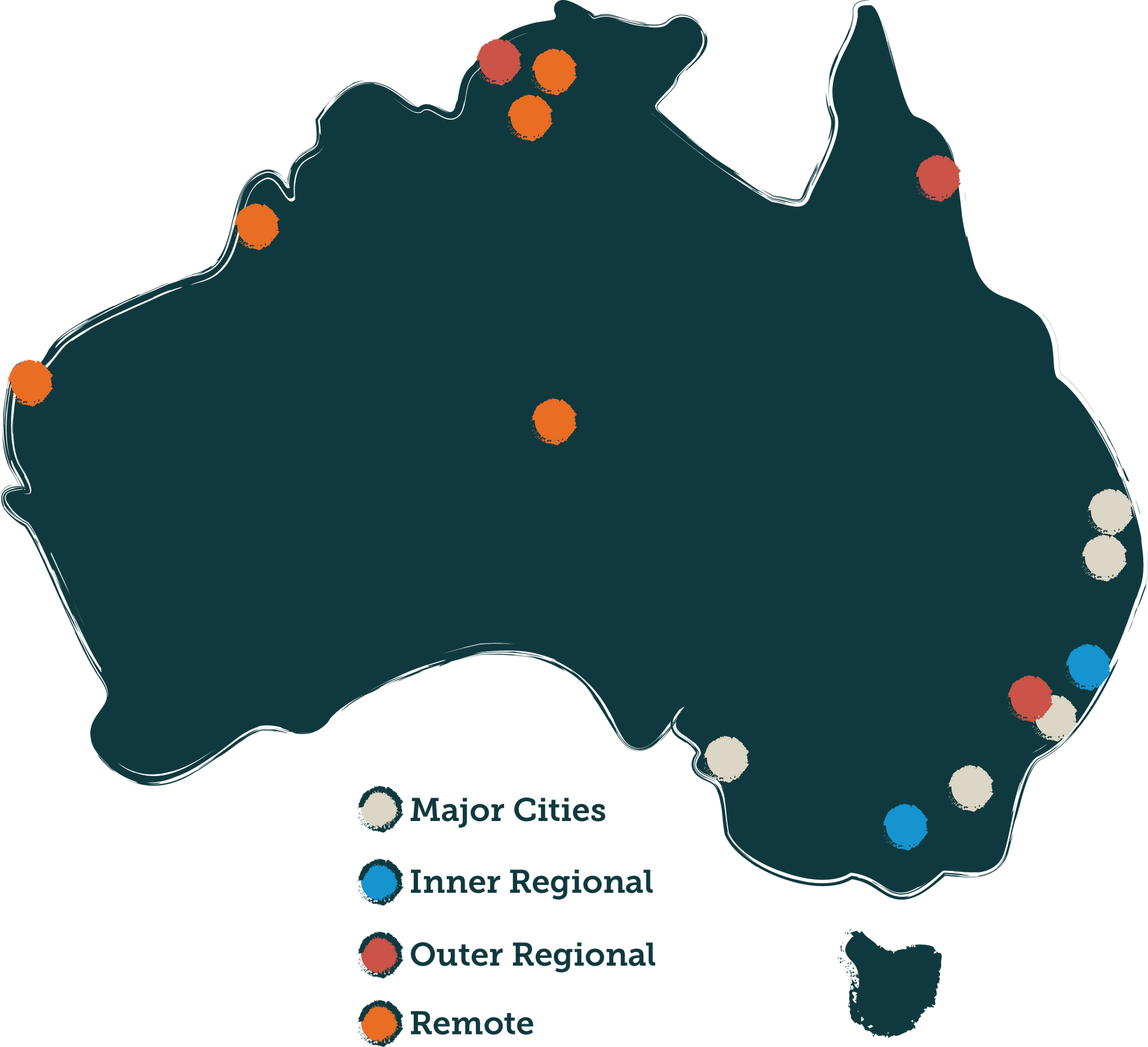

The Pilbara Aboriginal Health Alliance (PAHA) is a partnership between the three Aboriginal Community Controlled Health Organisations (ACCHOs) based in the Pilbara region of WA: Mawarnkarra Health Service; Wirraka Maya Health Service Aboriginal Corporation and Puntukurnu Aboriginal Medical Service. The priority for PAHA and these founding ACCHOs is to improve the health outcomes for Aboriginal and Torres Strait Islander people; families; and communities, in the Pilbara region.
At PAHA, we are proud and excited to be the newest member of the AFPP Family. PAHA and its members have engaged in formal partnership to elect PAHA as the lead agency for AFPP in the region, with PAHA hosting the Nurse Coordinator role and each AMS hosting the Nurse Home Visitor and Family Partnership Workers.
In August, we welcomed Samantha (Sam) to the AFPP Nurse Coordinator position. Sam is a mother of two who has spent the last 20yrs passionately working within the child health system throughout WA. In the last year, Sam has worked closely and formed solid relationships within the three Pilbara AMS’s as a clinical nurse with the WA RHD Register and Control Program and has enjoyed collaborating with communities and clinicians across the state.
Working alongside Sam, we were able to build the PAHA AFPP team with the inclusion of Briana, who identifies as a strong Worrora and Nyul Nyul woman to program admin support. Brianna is currently a full-time uni student at Curtin University and is studying a Bachelor of Applied Science majoring in Indigenous Community Development and Management Born and raised in Port Hedland, Brianna loves being a part of a close-knit community surrounded by plenty of opportunities for fishing, camping, and spending time with family.
In October this year, Sam and Brianna represented PAHA to showcase our spectacular region to Kym and Somma from the NSS for a Pilbara Roadshow. Puntukurnu (PAMS) Newman was our first stop on the Roadshow itinerary. PAMS is located in the very remote East Pilbara region of Western Australia delivering services in communities located in the Great Sandy, Little Sandy and Gibson Deserts. Newman town is located approximately 1,200 km north of Perth and has a population of roughly 4,500 people and is the closest town to many of the Western Desert communities of WA.
At the PAMS Newman Hub, we were able to meet with the staff and then were taken on a tour of the fabulous Women’s Homestead which offers holistic support, focusing on health promotion, prevention and early intervention to local women as part of its Upstream Health program. The NSS team were able to yarn with PAMS staff to learn about the challenges faced by local pregnant women - as there are no maternity facilities in the East Pilbara, all women are required to relocate to give birth at either Hedland Health Campus (450kms away) or King Edward Memorial Hospital in Perth (1,200kms away).
Day two of our Roadshow itinerary had us packing an esky with team lunch and heading off road with the PAMS team to Jigalong Community, located approximately 165km east of Newman and perched on the western edge of the Little Sandy Desert. The Jigalong community is home to roughly 450 people and is a clinical hub for PAMS. At the clinic, we were fortunate enough to meet and treat the Jigalong clinical team to lunch with a presentation on the AFPP program. This also gave the NSS team valuable insight into the antenatal and postnatal journey a Jigalong mum takes on her road to motherhood.
On Day Three of the Pilbara Roadshow we hit the Great Northern Highway towards Hedland town. A cultural side stop to Jubara or Ferns Pool as it is commonly known in Karijini National Park for lunch and a dip in the stunning oasis hidden among the regions iconic gorges, rugged landscape and ancient rock formations. Jubara is a sacred place for the Banjima people, holding significance as a women’s place where the Creator Serpent lived after winding through the land and creating the rivers and gorges of the Pilbara. The pool, framed on all sides by lush greenery and compete with a cascading waterfall, allowed us some respite from the heat and a chance to pause and take in the wonder of the surroundings.
Day Four started with a tour of the Port of Port Hedland, the world’s largest bulk export port by tonnage, located on the traditional lands of the Kariyarra people and then a drive around town to see Hedland Health Campus which provides care for pregnancies and births of all risks and is the regional hospital for the Pilbara.
After lunch, we met with the Wirraka Maya team for afternoon tea and AFPP presentation. This was a great opportunity for the clinical team to raise their questions around the program and discuss how it might best be implemented to suit the needs of community.
Our day ended with a drive to the coastal town of Point Samson for a lovely local seafood dinner at sunset. This allowed us to reflect on the trip so far, discuss key themes and discussions raised and plan for our final day of the Roadshow.
On our final day, we met with the Mawarnkarra team in Roebourne for morning tea and AFPP presentation and robust discussion on the program codesign process to ensure it aligned with current programs and services. This was followed by a trip up to Mount Welcome Lookout for a breathtaking view across Roebourne community and see the ssilhouette statues of six Aboriginal men with spear in one hand and standing on one leg. These statues represent the immediate neighbours of the Ngarluma people, each facing their own country.
Homeward bound, we headed to Karratha town to present the AFPP program to the Pilbara Aboriginal Health Planning Forum.
Overwhelmingly, the interest in and support for the implementation of the program was really well received with the potential benefits of the program to clients and the community in the region.
Next steps for the AFPP in the Pilbara is focusing our attention to PAMS Newman and Jigalong as the first sites off the starting block for implementation, codesign discussions with clinicians and community and recruitment to the roles of Nurse Home Visitor and Family Partnership Workers.
We were delighted to have had the support of the National Support Service and look forward to sharing our progress with you all in the future.
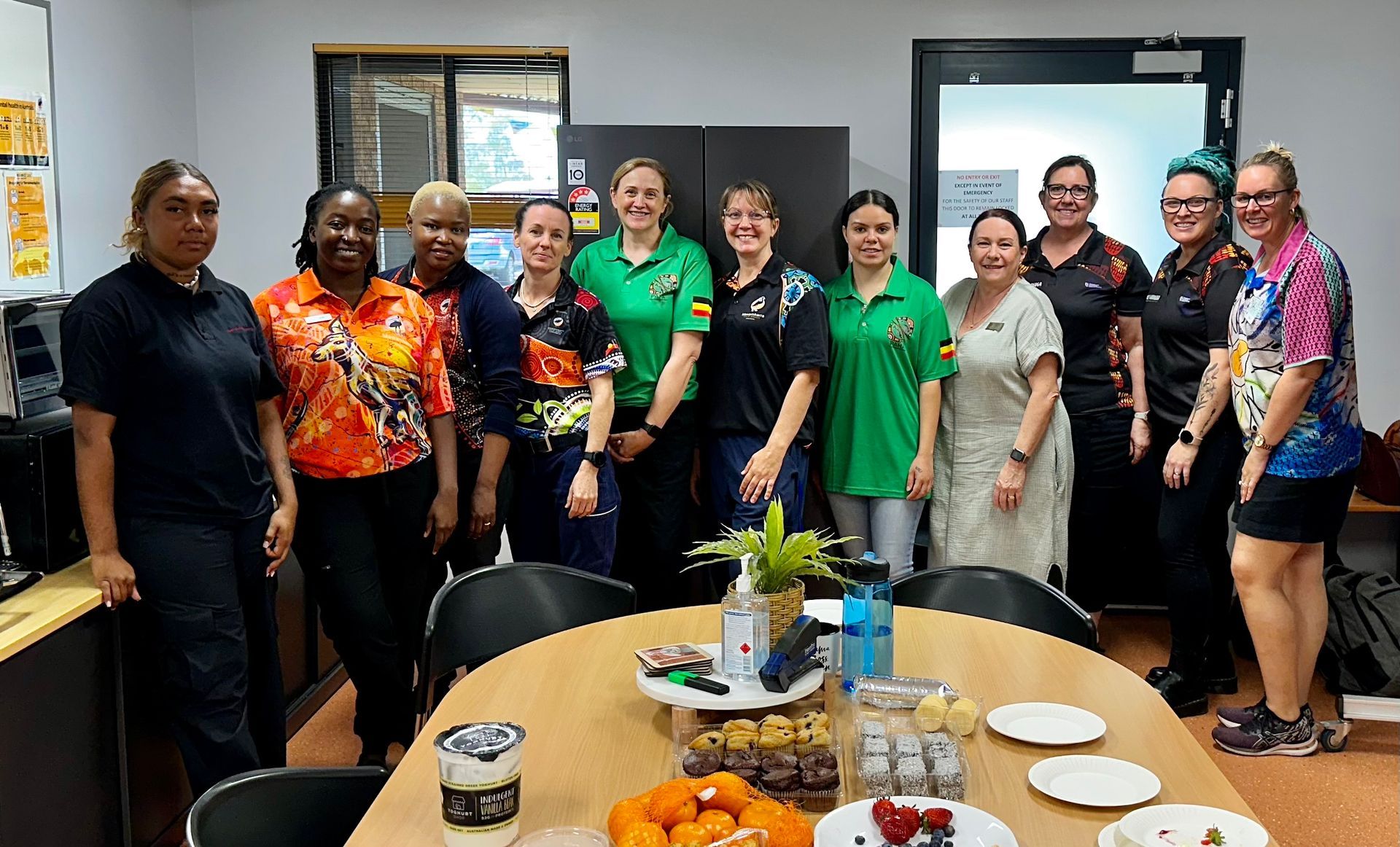


One of the biggest highlights for AFPP GWAHS this year has been holding our community event, “Healthy Mind, Body and Culture”.
The GWAHS team had identified that there was some resistance from local High Schools in engaging with the program with the misconception being that our program promoted teenage pregnancy. The team decided to get creative and host our event, partnering with Baabayn Aboriginal Corporation and inviting 100 year 10 Aboriginal girls from 7 different schools within our footprint to attend a day celebrating out theme; healthy mind, body and culture.
We used this opportunity to network with the Aboriginal Education Officers and the girls about what it means to be healthy as well as making good choices for their future. We had activities for the girls including a painting station, a weaving station and a jewelry making station, we also had a fitness instructor demonstrating how to use light weight resistance bands.
Our guest speaker was Elaine Crombie (Top End Wedding actress, comedian and musician) who spoke about life choices while making the girls laugh and including us all in her daily snapchat selfie.
The outcome was extremely positive with relationships being formed with the schools and a better understanding of our program should any of the girls find themselves in need of our support. The students enjoyed the day so much and happily submitted feedback forms requesting for the event to be held annually.
We did receive a referral from one of the schools on the day a couple more the following week, and the Aboriginal Education Officers were grateful to have AFPP’s support for these frightened young girls who were unsure who to trust or turn to.
The biggest challenge for our team has by far been the loss of staff members and the subsequent rebuilding of our team. In the last 18 months, we have lost 6 staff members.
At the time, we had a client load of 52 and only 1 AFPW and 3 NHV’s. The existing staff were burnt out and disillusioned but were hanging in there.
Eventually we were able to recruit some new team members and are about to recruit 4 more. Day to day operations has resumed now we have a permanent Nurse Supervisor and stability is slowly returning. We hope to build and secure a strong team by participating in regular reflective practice, team building days and trying to support each other as a team and as women.
Our site will definitely be looking forward to a face to face conference in 2024 as we dearly love to network with other teams and catch up with our mates from the other sites 😊
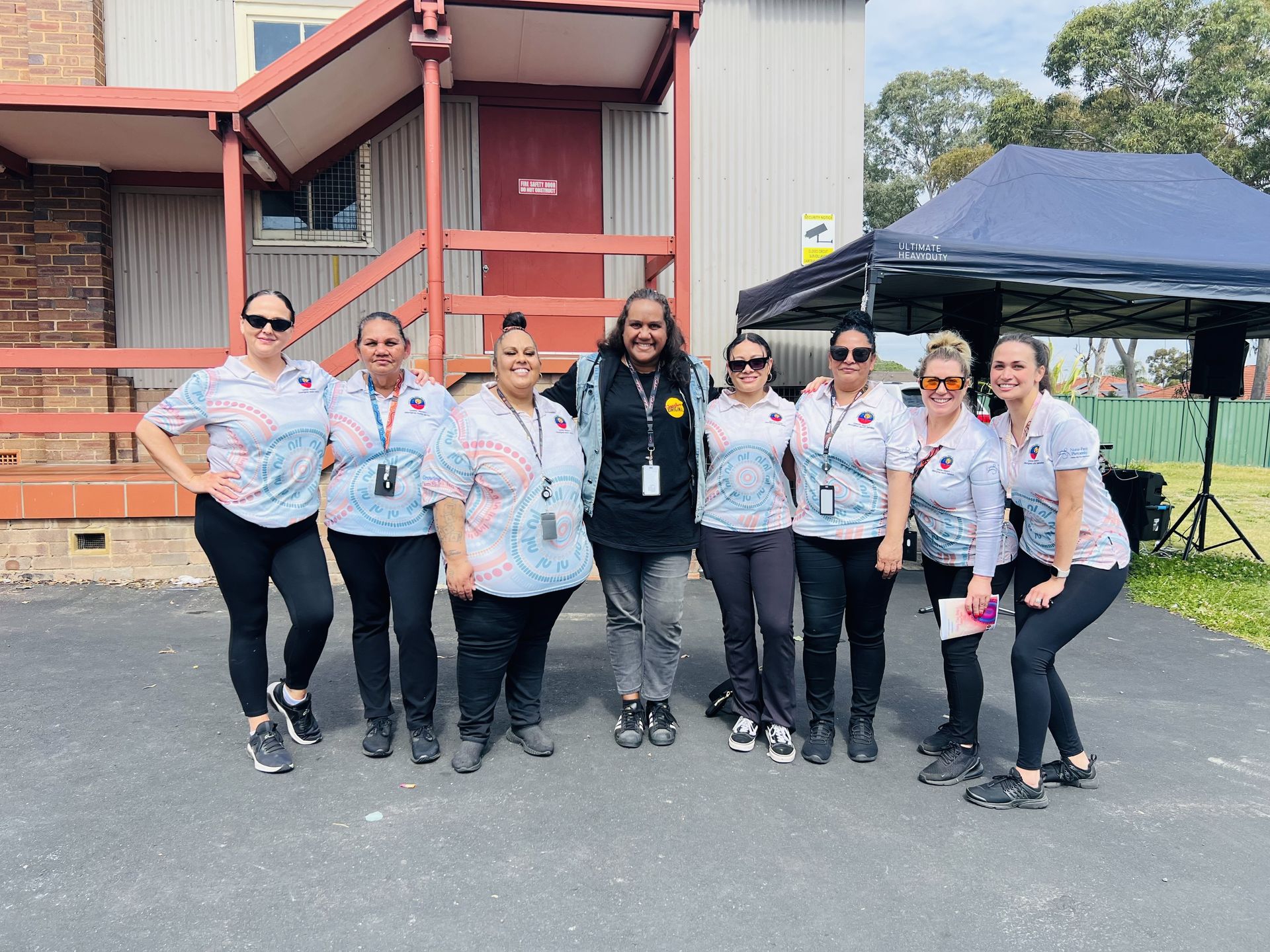

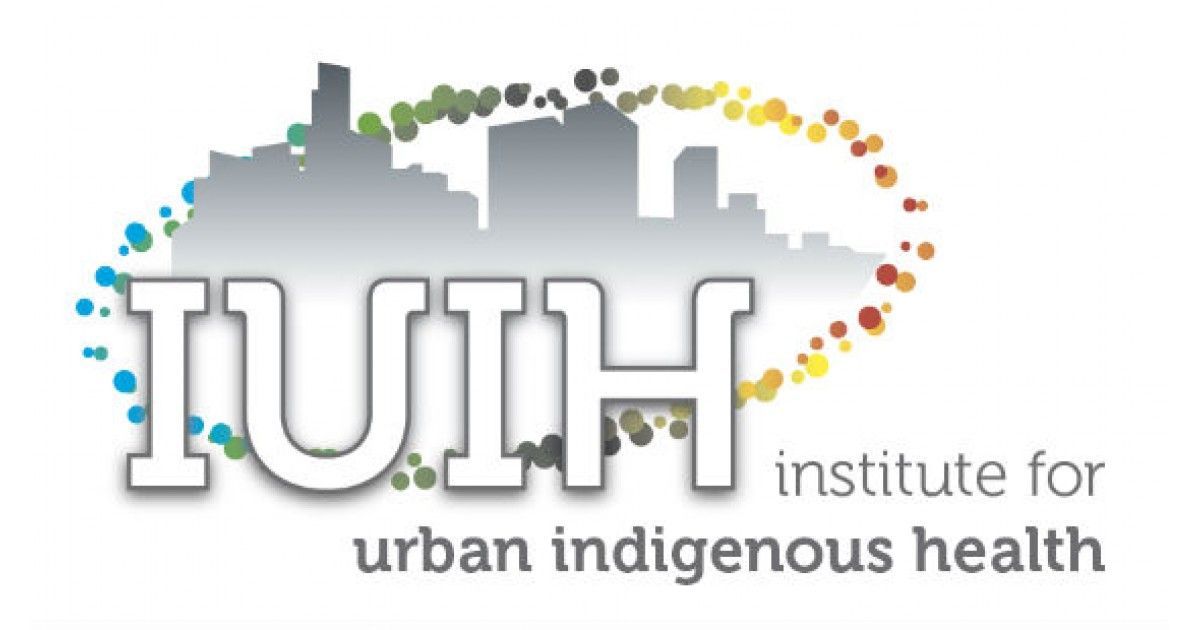
Our team describe the highlights of 2023 as having the ability, as a team, to laugh through all the difficult times whilst still making ourselves available for our clients. Sharing good news stories of clients making a difference in their lives, and our last highlight is finding the time to gather and eat together as a team.
A challenge we experienced this year was working on our processes as we migrated from working at home/remotely to returning to the office. We experienced an unexpectedly high staff turnover this year, impacting our ways of working and our clients. As a team, we have developed the skills to overcome challenges by letting go of the things we cannot control and becoming adaptable to change.
In 2024, IUIH Nth AFPP is looking forward to agile working, continuity and seeing our clients complete their journey from pregnancy to graduation and being busy with clients.

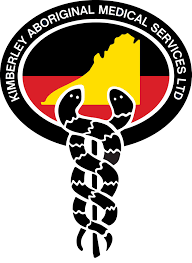
2023 Highlights:
- KAMS AFPP reached its first milestone of 6 months of clients into the program.
- 21 clients were actively enrolled in the program at that time.
- Client enrolment for October bring our total active clients to 33.
- This is around 66 % of our total caseload.
- Our clients are across the Kimberley: Broome, Beagle Bay, Djarindjin, Kununurra, Wyndham, Warmun, Doon Doon and Halls Creek.
2023 Challenges we'd love to share:
- KAMS AFPP continues to operate without a data base.
- Our home visit teams document all client contacts on paper forms.
- We now have 8 months of forms in locked files waiting for the enormous task of putting this data into MMEx.
- This also means the July - Dec report will be collated manually from paper forms.
- This does not give the best overview of our program as we are only collating data from a small data set.
- We are working with Isa Healthcare, KAMS ICT and NSS to solve the problems in the newly generated forms and system.
In 2024 we are looking forward to having MMEx; we are looking forward to having all our client consults in the data program and out of draws!
We are also looking forward to building our caseload and planning the longer-term future of AFPP in the Kimberley.
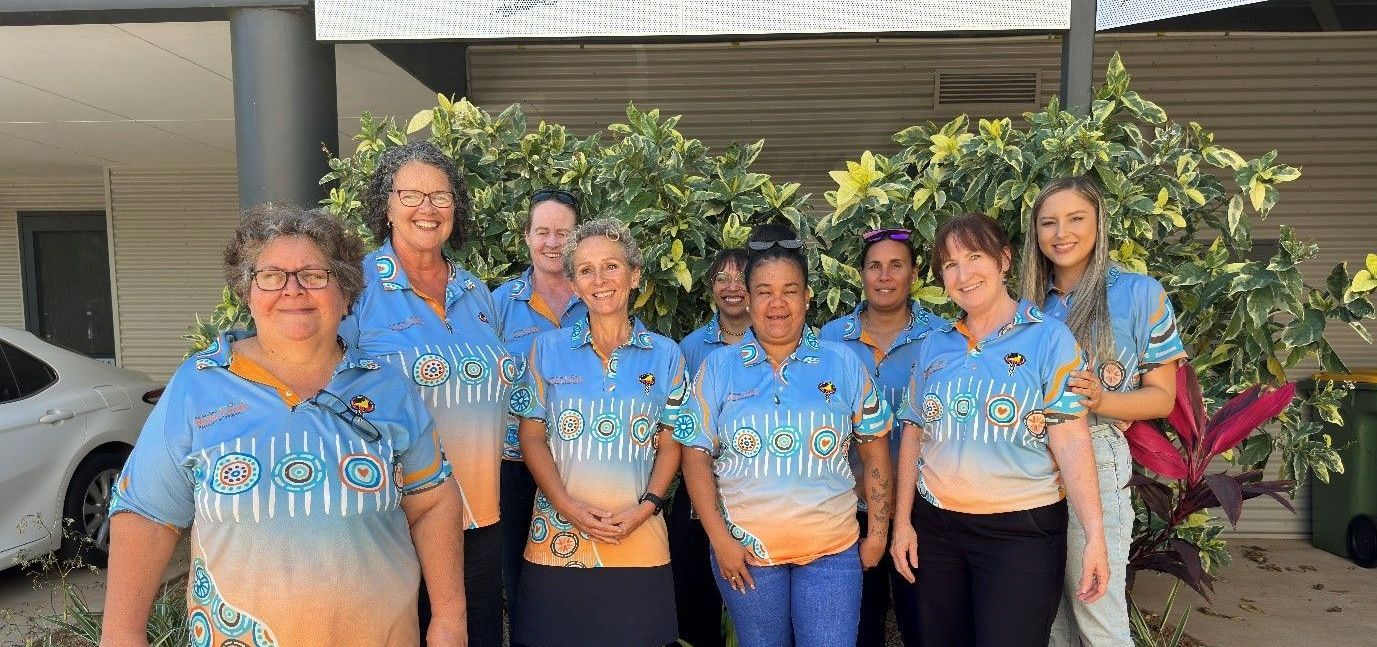


Highlights of 2023:
- The experience of attending Unit 3 face-to-face and meeting interstate colleagues was a positive and valuable one for the team.
- The team members found value in being together, sharing insights and learning from one another. Building positive relationships and fostering a sense of community in the AFPP.
- Moving to our new site has been both challenging and exciting.
- A new location has brought about a fresh start, new opportunities, and a chance to create a positive and productive work environment.
- Being able to host the graduation ceremonies at our new site provides a great opportunity to showcase the space and create a positive and memorable experience for the graduates and their families. The site has also provided the space needed to host regular client group activities. It has opened opportunities to offer diverse and enriching activities that were not feasible in the more confined environment at our original site.
Challenges of 2023:
- The transition to our new site was quite a challenging situation, especially dealing with the temporary split across three sites and the additional move in, move out process. Such transitions can introduce uncertainty and potentially disrupt the usual flow of services, so the team worked proactively to ensure continuity of service for our clients.
- The team managed these challenges by using clear and consistent communication. To maintain a sense of cohesion we had regular virtual meetings, updates, and the whole team tried to foster a collaborative spirit. By navigating these challenges together our team has emerged stronger and more adaptable.
In 2024 we're looking forward to:
- Planning day
- Official opening of our new site
- AFPP Conference


In October 2023 our region was significantly affected by flooding, resulting in extensive damage to our AFPP office, site and resources. The flooding also impacted our families, community and added significant burden to the housing crisis. Due to the damage we were required to temporarily relocate to an office in Shepparton and have spent the past year sharing space and working with our AOD and Social Emotional Wellbeing teams. Although we were were sad to lose the beautiful space we had been creating since 2018, we continued to support our AFPP families and adapt to the new environment.
Our team have spent the past 12 months sharing an office space and only a few weeks ago moved back to our original building in Mooroopna. We are beyond excited to start 2024 back in our office and feel more at home and focused for expanding our support and engagement. Our team and family’s success and positive outcomes keep us passionate; we love hearing and celebrating each new small or big win in our community.
Our NHV’s, Jen and Cindy, are making positive contributions towards positive pregnancy, birth and parenting with their added knowledge of midwifery and postnatal care. Our FPW’s have had a great year with Wendy-Sue and April both completing their Diploma of Community Services, and Jannali completing her first year of Diploma of Nursing. April was also successfully chosen with her design for this year’s shawl for the BreastScreen program at Rumbalara. This week all the women booked in for their breast screens will be wrapped in Aprils empowering design titled ‘Yorta Itjumatj Bayi’ (Healthy Breast).
It is so rewarding and helpful to look back on when the program first started at Rumbalara and see where it is now 6 years later. Our hope is that the next year will continue to grow and strengthen AFPP at Rumbalara and allow us to support more strong families in our community.
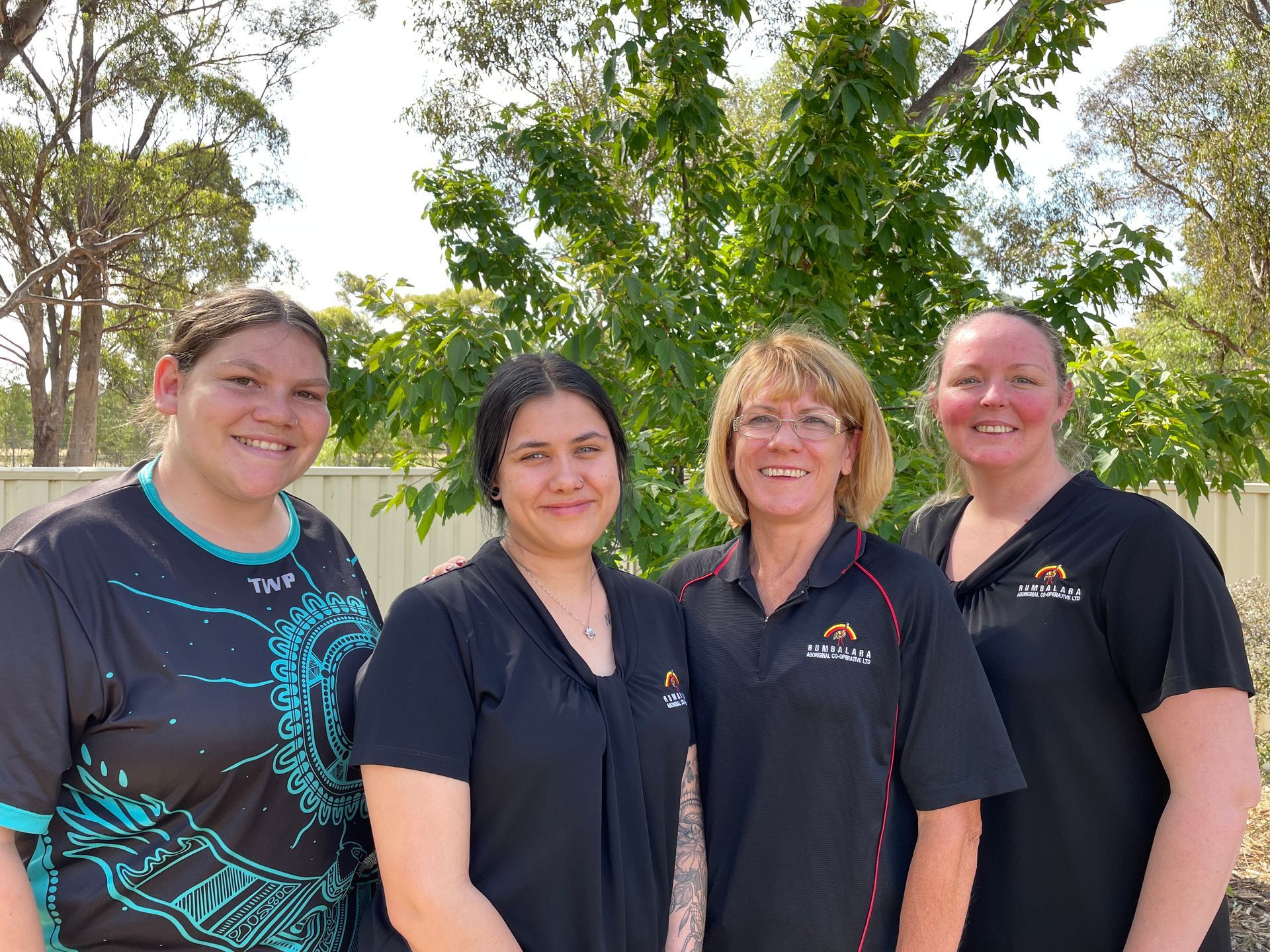

Wendy-Sue Atkinson
My name is Wendy-Sue Atkinson, Strong Yorta Yorta, Wemba Wemba woman, Proud Mumma to one, Miss Willow Sue.
I’ve many dreams when it comes to further education and achieving my goals. I have always loved working with people, so knew regardless of where I am or what I’ve studied, supporting others is what I believe I’m meant to do.
I currently hold a Diploma in beauty therapy because I believed in helping others feel good about themselves and self-care is definitely important. I don’t practice it as much as I’d like too, however, family are quick to ask for my expertise when it comes to special event.
During my time working as an FPW, I was given the opportunity to complete my Diploma in community services with the support from Rumbalara Aboriginal Cooperative. This course fits nicely with my role and I was able to walk away with more knowledge and understanding. This was an awesome achievement for me and has definitely pushed me to chase further dreams… which is exactly what I did!
I’ve recently enrolled myself in Diploma in Remedial Massage! I’m very excited to complete this course and very excited to see what lies ahead… baby massage could be on the cards… maybe I’ll study psychology and become a mental health worker, focusing on youth and future leaders.
One dream at a time though.
April Atkinson
My name is April Atkinson, a proud Yorta Yorta and Wemba Wemba woman from Shepparton, Victoria. I am an FPW in the AFPP.
In February 2022 I started a course to further my knowledge and qualifications for work at Rumbalara Aboriginal Co-Operative. The course was a Diploma in Community Services. When I started in this course, I was super anxious as I attempted a Cert 4 in Community Services a few years before but pulled myself out because I was finding it too hard to understand. So, with very high doubt in myself I started the course and did find it confusing to start with and was so sure that I was going to fail, but when I expressed my concerns about me completing the course to the teacher, she guided me into understanding along with everyone in the class, having that support was a really big help.
I completed the course in March 2023 and got my certificate. In the future I do want to take on further education but for now I am just super proud of that achievement.
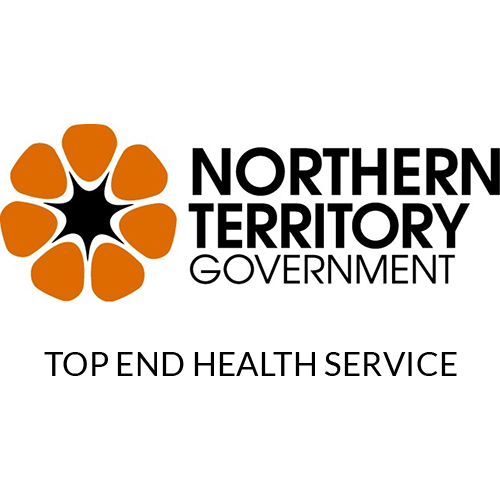
Wurrumiyanga & Maningrida
Over the past month the Top End remote team has facilitated our FPWs Damascena Tipakalippa and Cecilia Brian to visit each other’s communities in Wurrumiyanga, on the Tiwi Islands and Maningrida, East Arnhem Land, respectively. The purpose for these visits was to provide an opportunity for the FPWs to observe and learn how program delivery differs from place to place, as to develop and inspire new ways of thinking as we approach a new year. Damascena reflected upon her trip to Maningrida and that for clients in Wurrumiyanga stating “I want to take something different from here back to home” and “I think they need to go down to the beach”…”to relax, see the sea and yirrkapay (crocodile), and have the cool breeze”. During Cecilia’s trip the team did just that, facilitating a young mother and her family to join the AFPP team on the beach for program. Earlier that day Damascena, Cecilia and Ella the NHV, with the help of Dami’s uncle, collected a mullet from the fish trap by the tingata (beach) to eat with clients later that afternoon.
The AFPP team prepared for a fire, damper and fish cook up on the tingata, and Damascena then went and collected firewood with the client, her young son, mother and brother. As the fire was burning down Damascena and Cecilia completed a 6month ASQ-TRAK together alongside the NHV Ella. The FPWs reflected with Dami stating “It went well, the bubby is doing okay with his development”. After the ASQ-TRAK was complete the whole team enjoyed the fresh mullet and damper with butter and honey as they told old stories about the area, passing them on from generation to generation and sharing culture with all members of the team. As the Top End Remote team heads toward the end of the year, FPWs from Gunbalanya will be travelling to Maningrida to join Cecilia, and there are plans to have continued visits for each community in 2024. Having the opportunity for this not only encourages team and relationship building, but also provides 2 way learning and development in culturally safe and inclusive care for our remote clients.
AFPP Program Implementation in Collaboration with Community – Father Inclusive
The AFPP team in Gunbalanya, NT worked in collaboration with Family as First Teachers (FAFT) at the Child & Family Centre to engage Mothers and their young babies in a program on 1st November 2023. Often during the morning FAFT can be overwhelming and an overload stimulation for young babies. So the teams worked together to create a calming/ welcoming space for young babies and their families to enjoy.
The session ran in the afternoon with dim lights, an oil burner and relaxing music. There were two families from the AFPP program who attended. The Mothers, Grandmothers and one Father attended too. The babies ranged from 6-9 months old.
AFPP FPWs Margaret Nabulwad and Cheryl Nadjalaburnburn with NHV Sophie Eakins, used dolls to demonstrate gentle baby massage techniques whilst families followed with their babies. The babies were relaxed and enjoyed the session.
During the session the team discussed the benefits of massage and appropriate times to do baby massage as well as safe sleeping and safer ways of co-sleeping with babies. This session was interpreted by FPW’s into the local language, Kunwinjku to ensure everyone could understand. Video resources such as RED NOSE Grandparents & Safe sleeping and handouts were used to assist in explaining safe sleeping
One challenge the team faced was searching for Aboriginal & Torres Strait Islander culturally appropriate video resources prior to the session. The team are looking forward to looking into making their own educational resources in 2024 in local language to make it more relevant for families in the community.
Both FAFT and the ANFPP teams are really looking forward to collaborating again in the future.

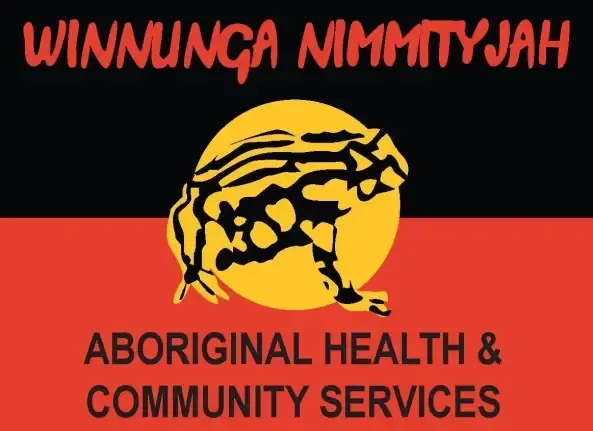
AFPP at Winnunga Nimmityjah AHCS has seen multiple new employees commence in Family Partnership Worker, Nurse Home Visitor and Nurse Supervisor positions. An almost full complement of staff has led to an increase in client numbers as reduced staff numbers has limited the growth of the program over the past 12-18 months. After a long hiatus the weekly AFPP client group has restarted with great enthusiasm from staff and clients. An AFPP 2023 Graduation and Christmas Party is in the making to end the year with a bang and we look forward to growing our services in 2024.
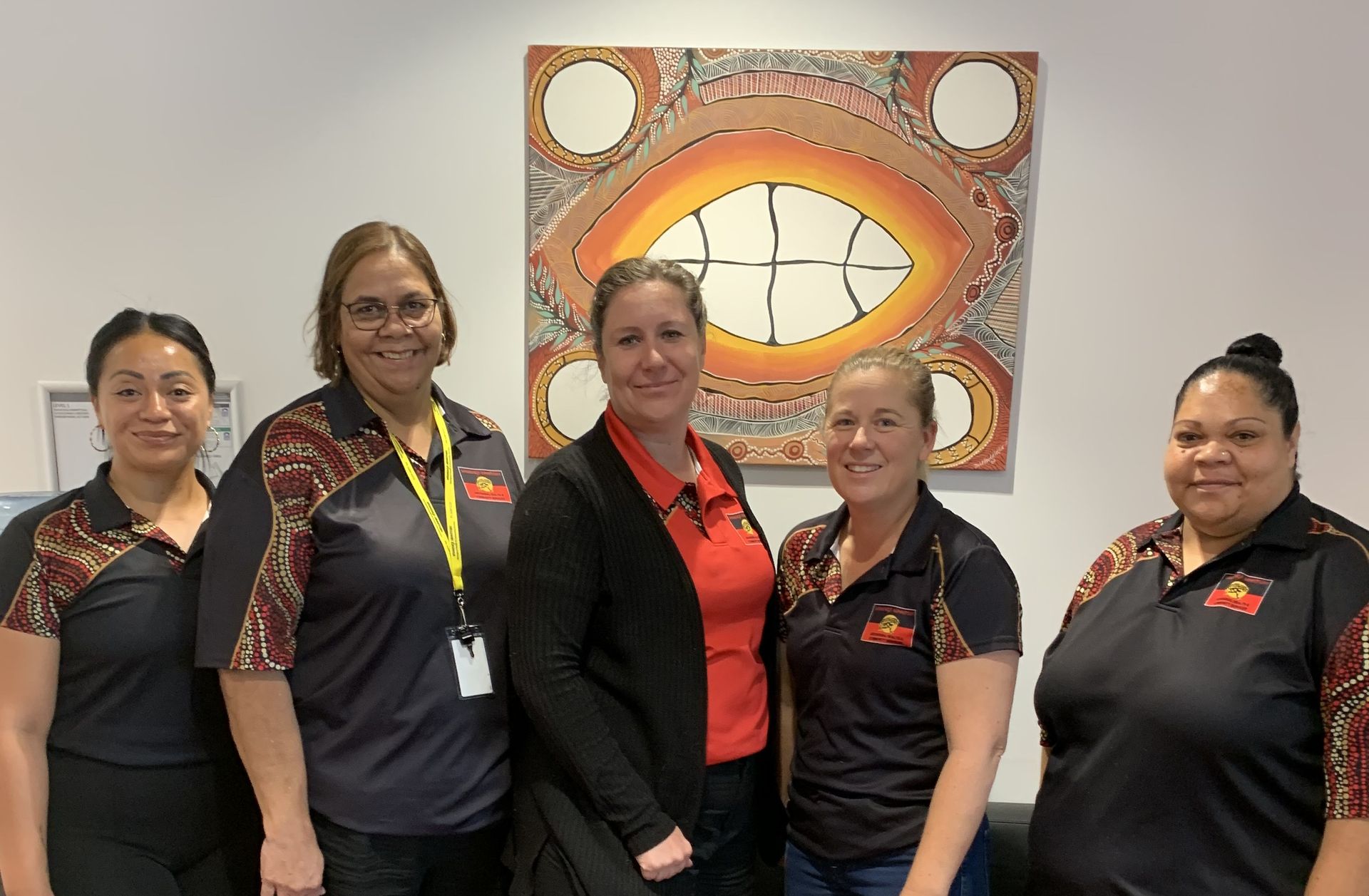

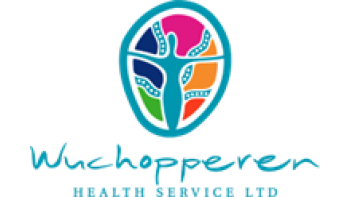
The past 12months have seen some ups and downs within the Wuchopperen but the continued commitment and dedication of the team to our clients helps us to rise above the challenges. We have been a lucky team to have a full complement of staff allowing for continuity of care for our mums and bubs. Lack of affordable housing for our families as been one of the main challenges to assist our clients to secure housing. However, we persistently alongside our families by referring them to housing support services and assisting with advocacy to achieve this goal.
Our client graduations and client activities have always been a highlight within the program. This year one of lovely clients took the lead on one of the activities and taught our other mums how to do embroidery on baby clothes. The activity was a great success and was enjoyed by all who attended.
As the end of 2023 is fast approaching the team is busy working on our end of year Christmas events. In 2024, we will be ready to take on any new challenges to help our families strive and we look forward to meeting up with all the other AFPP sites for our bi-annual National conference.
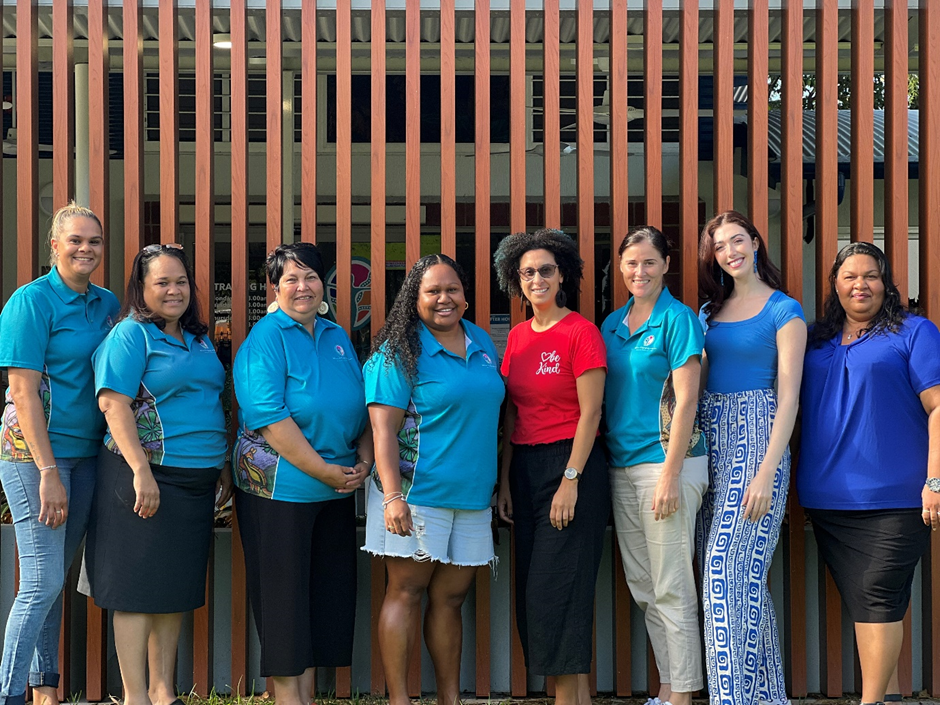

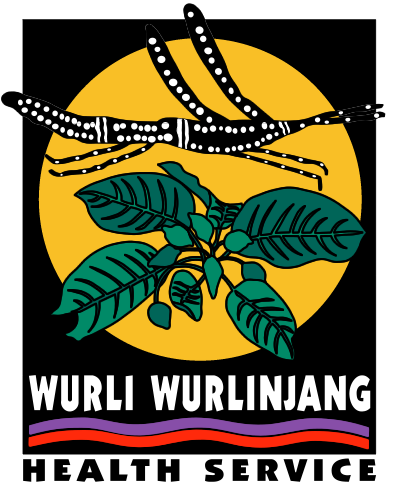
One highlight of this year is that pretty much all of us getting to do face to face training and having the opportunity to meet other AFPP staff from around Australia 😊
One challenge in 2023 is getting reporting done! Sara got there in the end <applause!>
Losing our NS, Sara will be missed by us all, we are grateful for all her hardwork she put into getting the program back on track. We look forward to continuing this progress next year, hopefully supported by a new NS.
In 2024 we are looking forward to hopefully a full team, a stronger program and the conference – especially the conference – maybe it should be in Bali 😝
